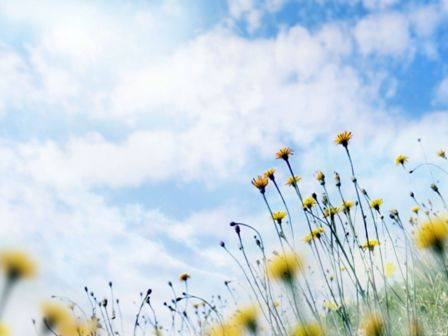
Chances are, if you garden, you are conscious of your impact on the earth. At the same time, you still want to get rid of pests and weeds and grow lush, healthy plants. There are numerous eco-friendly approaches you can take that will provide for a healthy, beautiful garden. Here are some tips.
1. Insect Control Go for natural pest control. You can make your own soap insecti cide by mixing a tablespoon of biodegradable dish soap into a gallon of water and spraying it on your plants. You can increase the amount of soap if the above ratio is ineffective. Diatomaceous earth is a natural form of pest control that works well on slugs, snails, pill bugs, and a variety of insects. It works mechanically, not chemically, by drying out the bug's body. Neem oil is another natural form of pest control. You can mix neem oil with soapy water and spray it on your plants (try adding it to your home-made soap insecticide), or buy a commercial product containing neem. You can also arrange your garden plants for maximum pest control. For example, sage repels cabbage loopers and tomato worms; thyme repels cabbage loopers and white flies; and garlic repels aphids and Japanese beetles. Plant these pungent herbs near your vegetables and roses. If deer are garden pests in your area, consider deer-resistant ground covers and other plantings.
2. Make Your Own Compost If you're not already doing this, go for it! It's a money and time saver, and it puts your kitchen and lawn waste to good use.
3. Consider Native Plants Natives are naturally pest and disease resistant, meaning you won't have to intervene as much with pest control. Also, native plants support the surrounding, natural ecosystems.
4. Containers If you garden in containers, consider using recycled materials for your plants. Some manufacturers produce pots and planters made from rice hulls, glass scraps, and other recycled materials. You can make your own containers, too. Even old tires can be used as planters. Recycle broken kitchen pots and kettles, baskets, milk jugs, and plastic bottles into planters. Two-liter plastic bottles can be used to make mini terrariums as well.
5. Lighting Solar lights with stake-style bases can be purchased for less than $5 each. You can get more elaborate with other lighting, but just make sure it's solar. These bright lamps will automatically come on at dark and they produce a pleasant amount of light.
6. Weeds No one likes to weed, but pulling them out is much more eco-friendly than pouring chemical weed killer on them. Doing so when the ground is soaked makes it infinitely easier. If you don't want to (or can't) yank the weeds, you can pour white vinegar directly on them. Wet the leaves thoroughly with the vinegar and let some of it soak into the ground. For a real weed-killing punch, add 10 drops of clove or cinnamon essential oil to a quart of pure vinegar. Shake well and spray or pour on weeds.

